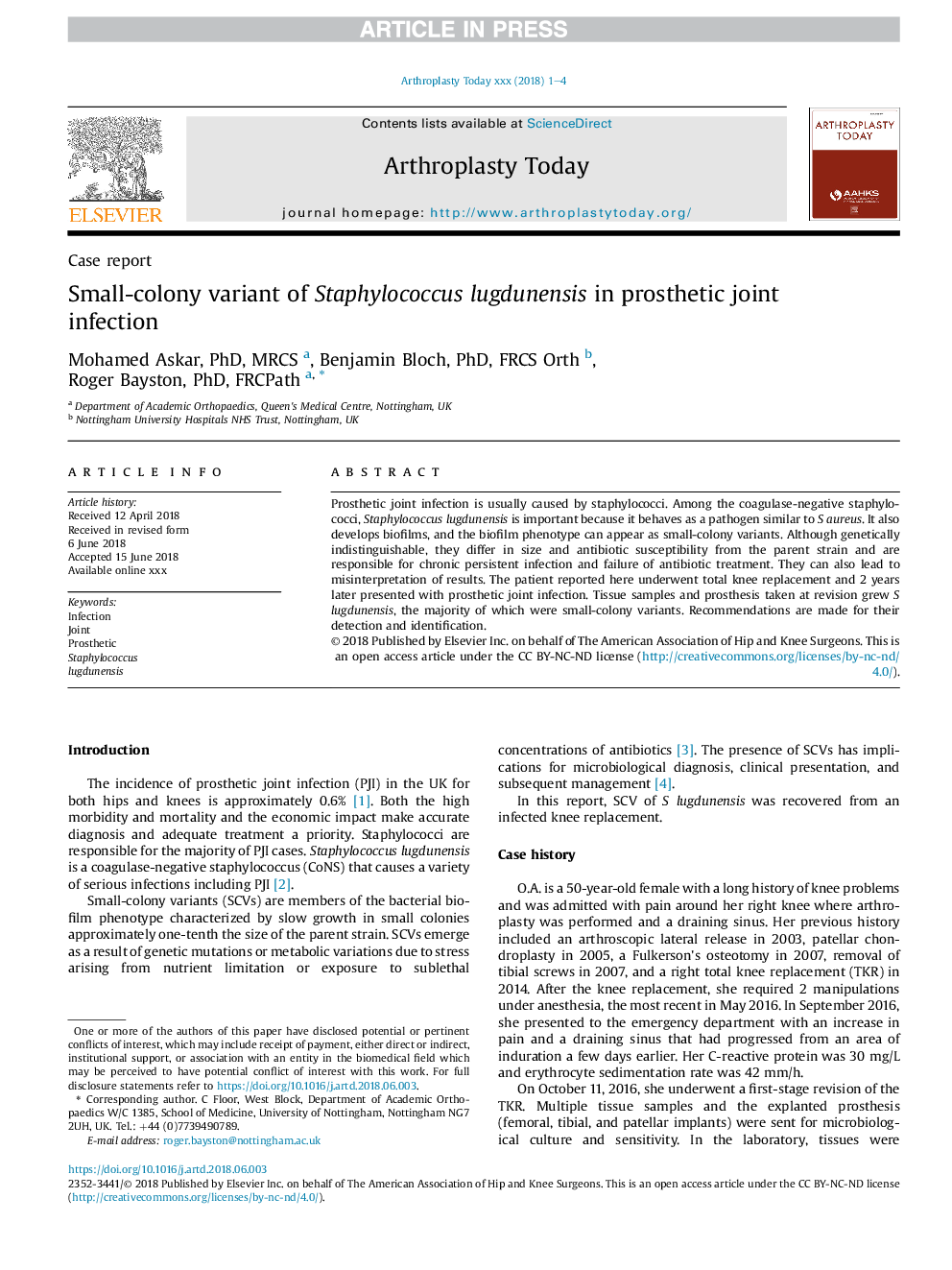| Article ID | Journal | Published Year | Pages | File Type |
|---|---|---|---|---|
| 8958595 | Arthroplasty Today | 2018 | 4 Pages |
Abstract
Prosthetic joint infection is usually caused by staphylococci. Among the coagulase-negative staphylococci, Staphylococcus lugdunensis is important because it behaves as a pathogen similar to S aureus. It also develops biofilms, and the biofilm phenotype can appear as small-colony variants. Although genetically indistinguishable, they differ in size and antibiotic susceptibility from the parent strain and are responsible for chronic persistent infection and failure of antibiotic treatment. They can also lead to misinterpretation of results. The patient reported here underwent total knee replacement and 2 years later presented with prosthetic joint infection. Tissue samples and prosthesis taken at revision grew S lugdunensis, the majority of which were small-colony variants. Recommendations are made for their detection and identification.
Related Topics
Health Sciences
Medicine and Dentistry
Orthopedics, Sports Medicine and Rehabilitation
Authors
Mohamed PhD, MRCS, Benjamin PhD, FRCS Orth, Roger PhD, FRCPath,
